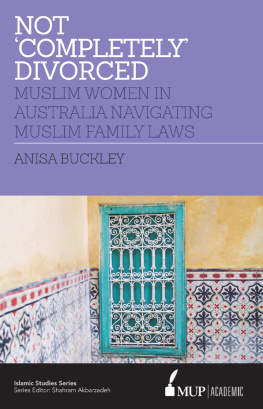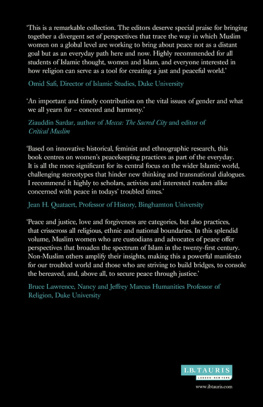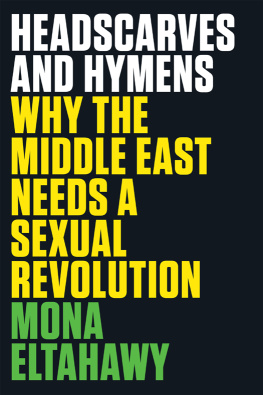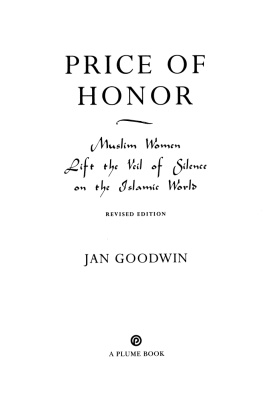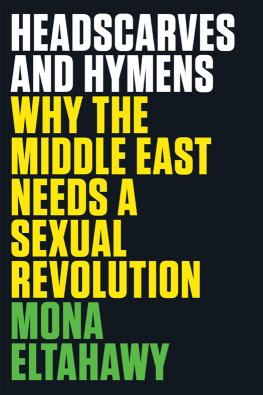ON SHIFTING GROUND

Published in 2014 by the Feminist Press
at the City University of New York
The Graduate Center
365 Fifth Avenue, Suite 5406
New York, NY 10016
feministpress.org
Preface to the second edition and introduction copyright 2014 by Fereshteh Nouraie-Simone
Compilation copyright 2014 by Fereshteh Nouraie-Simone
All rights reserved.
ISBN 978-1-5586-1856-5
No part of this book may be reproduced, used, or stored in any information retrieval system or transmitted in any form or by any means, electronic, mechanical, photocopying, recording, or otherwise, without prior written permission from the Feminist Press at the City University of New York, except in the case of brief quotations embodied in critical articles and reviews.

| This book is supported in part by an award from the National Endowment for the Arts. |

| This book was made possible thanks to a grant from New York State Council on the Arts with the support of Governor Andrew Cuomo and the New York State Legislature. |
First edition published by the Feminist Press in 2005.
Second edition, first printing July 2014
Cover design and text design by Drew Stevens
Library of Congress Cataloging-in-Publication Data available
Contents
FERESHTEH NOURAIE-SIMONE
O n Shifting Ground: Muslim Women in the Global Era is a collection of essays exploring the agency and change brought about by the spread of digital communication technology, economic globalization, and sociopolitical transformation in societies where religion has renewed prominence.
The essays in this volume challenge stereotypical views, especially the assumption of a monolithic Islam: static and traditional, in which women are regarded as effectively voiceless and invisible. The essays also show that tradition need not oppose modernity and, in fact, the examination of tradition may bring to light the rich history of womens activism and resistance to subordination. On Shifting Ground addresses the modernity of gender politics in contemporary Islam, local feminism, and the ability to be an agent of ones own choice from within a patriarchal context.
The Internet and its associated technologies have affected political and cultural spaces to create alternative discourses, enabling women, youth, and grassroots activists to organize for change, freedom, and equality. Roles and identities are redefined through the use of digital technologies and social media, providing alternatives for citizen activism to impact the public sphere, changing the nature of political participation so that individuals have a larger role than just casting a vote.
In the 2011 Egyptian Uprising, young activists harnessed digital technology and social media to generate public support, to rally and to protest, and to produce news in response to demonstrations at Cairos Tahrir Squarethe symbol of protest and citizen participation for the Uprising. News of the Arab Spring that swept the region and resulted in the ouster of aging autocrats circulated through social media and world news, but the wave of political rallies and mass protests had begun long before 2011. Sociodemographic change in the regionthe young nature of the population, mass education, and growing access to information technologybrought to the forefront a decade of political activism in which satellite television, the Internet, mobile phones, and video cassettes revolutionized modes of communication and politicized the new generation. In the absence of political freedom, the new media provided a new forum for debate and discussion, exposing repressive regimes, eroding the cult of personality, and encouraging an active citizenry.
A young generation of Iranian women who had established feminist journals, independent organizations, and embraced the Internet as a site of ongoing discourse on issues of feminism, religion, patriarchy, discriminatory laws, and gender politics, strategized a sophisticated plan of action to produce alternative discourses. In 2006, for instance, a small group of activists for gender equality launched an advocacy campaign to collect One Million Signatures to petition Parliament, demanding reform and revision of misogynous laws. The activists used the Internet, blogs, and other social media platforms, as well as street campaigns to reach out and engage women nationally against discriminatory laws. In their efforts they were harassed, beaten, and detained. But they set up an example of how a loose and unofficial network can gain widespread support, open new possibilities for citizen activism, and foster change.
The widespread protest contesting the 2009 Presidential Election in Iran, which became known as the Green Movement, further demonstrated the organizational capacity and strength of Iranian womens networks, and the tenacity, resolve, and innovation of the young generation to challenge authority and harness civic power against adverse political and social conditions and systematic forms of oppression. New technology that created an interrelated information environment has allowed such protests and debates outside of political and social strictures, inviting citizen participation, bypassing barriers of class and gender, and creating new possibilities for the previously excluded.
In the new edition of On Shifting Ground, Loubna Skallis Defying Marginality: Young Women and Social Media in the Middle East, focuses on womens political use of digital communication before and after the Arab Spring. Drawing on materials from twenty personal interviews, which she conducted with women from Morocco to Bahrain, she writes that young women who participated in recent democratic movements are changing the way they define themselves and their place in the world by the way they relate to power and authority, and by engaging with the institutions that shape their lives. Not only are they challenging the stereotypical characterization of victimhood and disengagement, they also are reconstructing activism with a degree of political sophistication and agency that Skalli refers to as feminist repositioning in relation to family, the state, and established womens organizations. While not rejecting the institution of family, they question the hierarchical structure of traditional society, state patriarchy, and the hegemony of age and sex, in quest for gender justice and equity. The new media and information technology have politicized the young women of the region, she concludes, enabling them to question the strictures of their lives and to challenge authority, despite marginalization within their societies.
Mervat Hatem, in her essay, Postcoloniality and Gender Narratives of the January 25, 2011, Revolution in Egypt, offers a critique of the gender discourse that characterized the revolution as anti-women. She argues that a feminist, liberal, or conservative construct of gender inequality fails to recognize the fact that these revolutions have not responded to the needs of young, unemployed, or working-class poor, and their assumption of gender, based on an old system of representation, does not address the current political and economic reality of the region. Hatem offers a broader discussion of gender, rejecting both liberal and conservative narratives as uncritical applications of conventional concepts of identity politics. These narratives represent an old national discourse that has used gender issues as part of the struggle between Islam and modernity.
Next page

